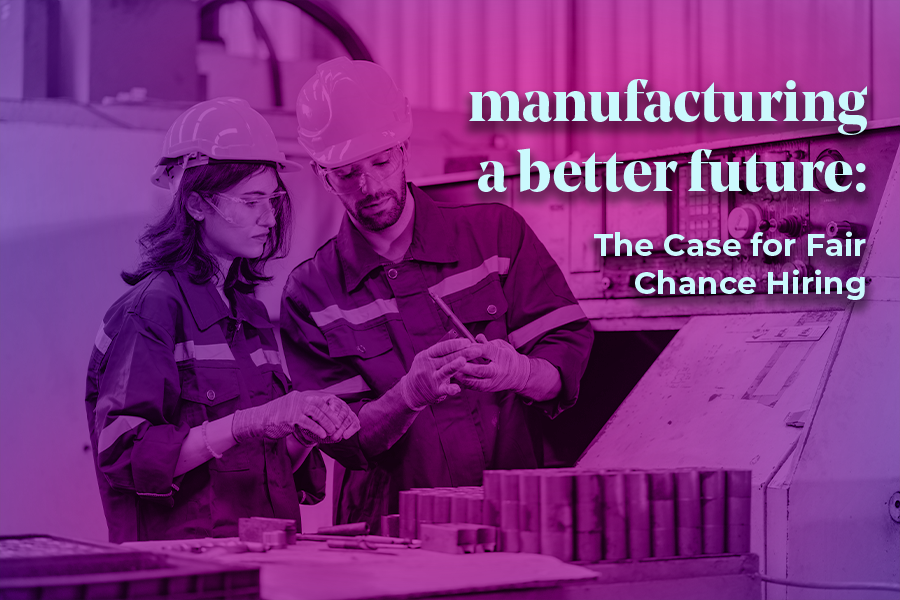Utah and Arizona’s manufacturing sector is grappling with a significant labor shortage. Across the two states, there are hundreds of thousands of unfilled manufacturing positions, with projections indicating there could be as many as over 2 million open jobs by 2030. This shortage is not merely a statistic; it’s a critical issue affecting 63% of the manufacturers struggling to fill essential roles. Consequently, the industry is experiencing slower revenue growth and diminished production capacity.
However, amidst this labor crisis lies a massive untapped talent pool: individuals with criminal records. Shockingly, one in three Americans has some type of misdemeanor or felony level record, and 60% of formerly incarcerated people are looking for work. We can’t shut a third of America out of the workfocre and many of these individuals possess the skills and experience needed to bridge the existing labor gaps in manufacturing.
Fair Chance Hiring is a Win-Win:
Fair chance hiring presents a mutually beneficial opportunity for all stakeholders involved. Manufacturers gain access to a pool of skilled and often overlooked job seekers, those with a criminal history secure gainful employment, and society benefits from reduced recidivism rates. This creates an opportunity for everyone involved to win. There are many benefits to implementing fair chance hiring, here are just a few:
It makes financial sense:
- Studies show that 85% of business leaders find employees in similar roles with criminal histories perform as well as or better than those without records.
- Hiring individuals with criminal records decreases turnover rates by 12% on average, saving companies thousands of dollars in recruitment, training, turnover, and retention costs.
- Many states offer tax credits, bonds, and other incentives to employers who hire individuals with criminal records, providing even more financial benefits to manufacturers who embrace fair chance hiring.
It enhances reputation and community relations: By participating in fair chance hiring, manufacturers can demonstrate their commitment to social responsibility and improve their standing in the community, potentially attracting new customers and business partners. 78% percent of consumers report being more likely to buy from a company that aligns with a cause they care about. Marginalized communities are disproportionately impacted by the justice system. Fair chance hiring allows manufacturers to build a more diverse and inclusive workforce – achieving social impact targets and creating positive social change.
It fosters a culture of second chances: Embracing fair chance hiring can contribute to a positive company culture that values second chances, redemption, and personal growth. These shifts lead to a more engaged and motivated workforce with lower turnover and higher worker satisfaction.
Want to Unlock the potential of fair chance hiring?
We are here to help. Fill out the form below and we’ll get in touch with you to discuss your hiring pain points and help your business thrive by implementing fair chance hiring policies.
Other Resources:
In Utah, check out the Salt Lake Chamber’s Fair Chance Hiring guide
In Arizona, check out the Arouet Foundation’s Fair Chance Hiring Guidebook
